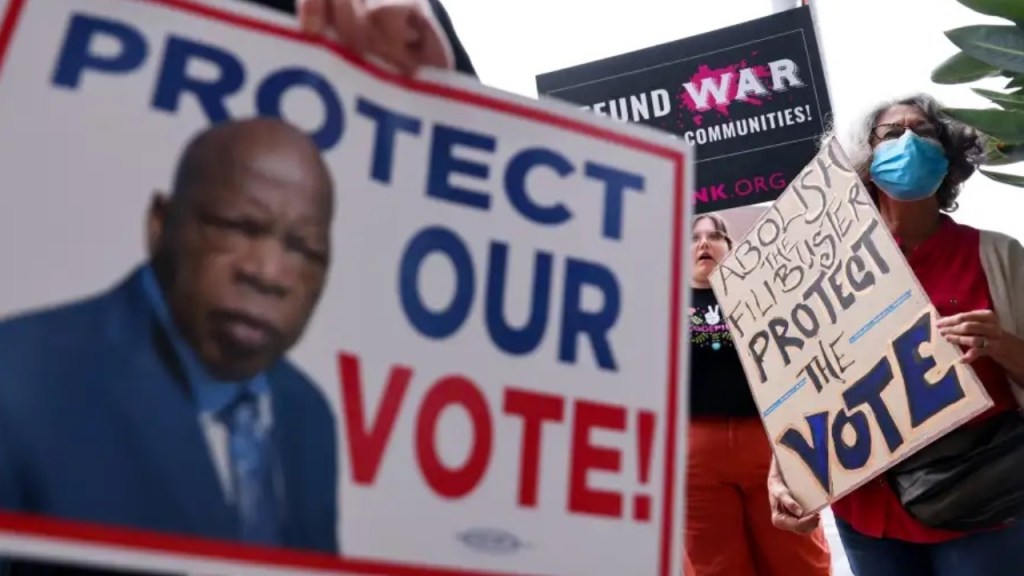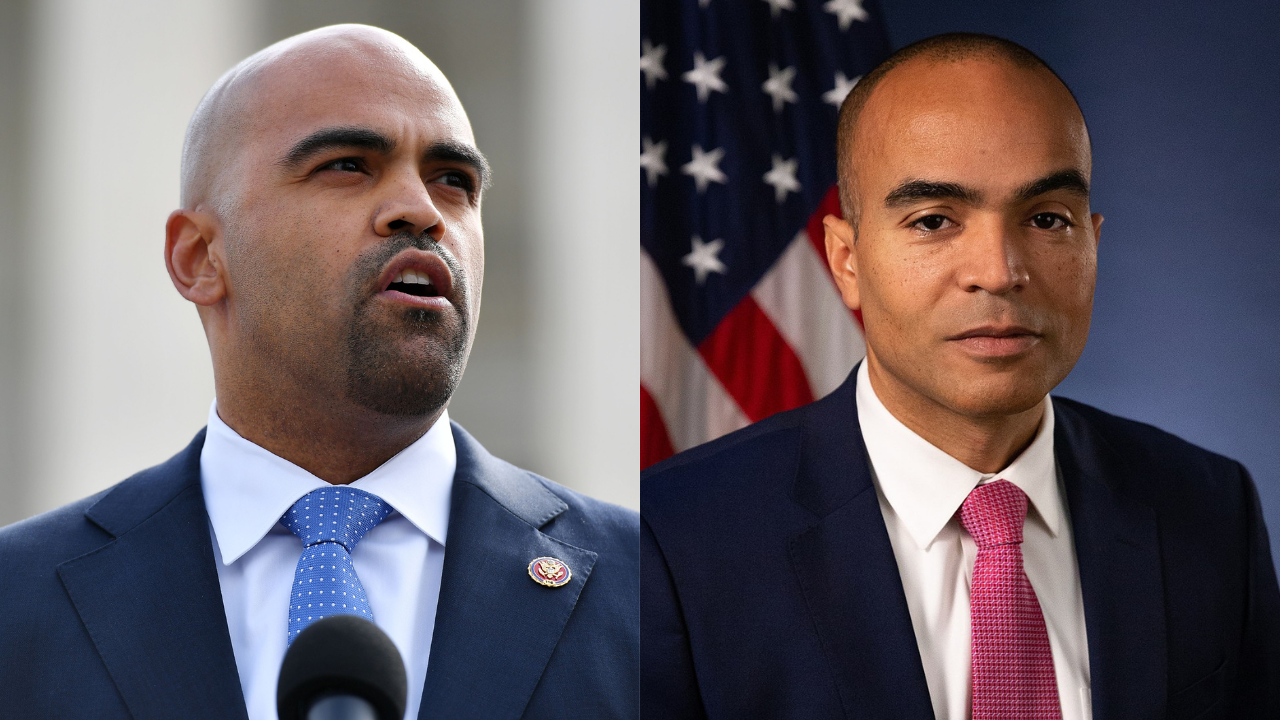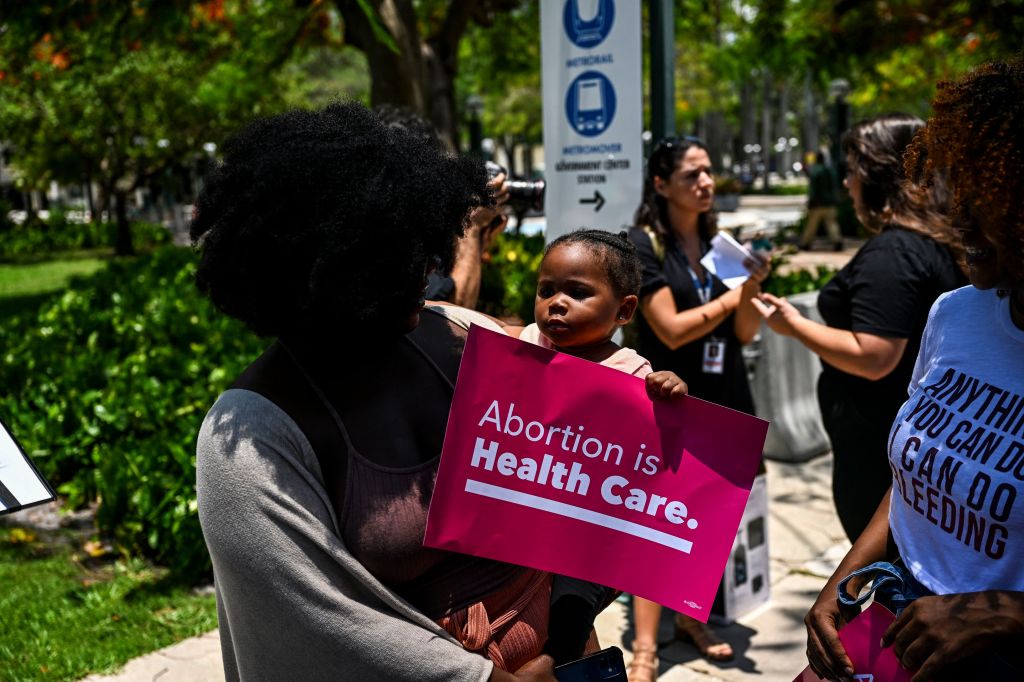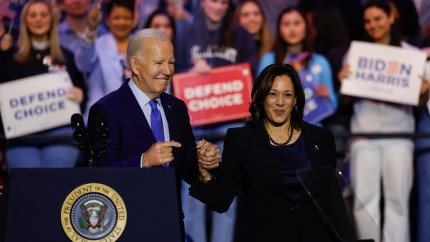What Black voters should know 6 months before Election Day
TheGrio provides a cheat sheet for Black voters as they navigate the candidates, races and policy issues ahead of Nov. 5.

This week officially marks six months until Election Day. As Black voters navigate the slew of candidates, races and policy issues, theGrio has compiled a cheat sheet for what you should know just 183 days away from Nov. 5.
All eyes on Black voters
Data from the 2020 presidential election shows that Black voters were essential to the historic win for President Joe Biden and Kamala Harris. In key battleground states, where Biden and Harris won by tens of thousands of votes, Black voters in major urban cities like Philadelphia, Atlanta and Detroit made the difference. In the 2024 election, Biden and Harris will need to replicate similar patterns of Black turnout to win toss-up states like Georgia, Michigan, Pennsylvania, and Wisconsin.
However, Black voters may not be as reliable for Democrats as seen in years past. Polling data shows declining support for Biden and Harris amid concerns about the economy and the administration’s handling of Israel’s war against Hamas, which has killed more than 34,000 Palestinians in Gaza.
Consequently, third-party candidates like Cornel West (who announced a historic all-Black presidential ticket) and Robert F. Kennedy, both running as Independents, have been on the campaign trail specifically targeting Black voters. Former President Donald Trump, the presumptive Republican presidential nominee, has also upped his efforts to court Black voters, seeing an opening to spoil Biden’s chances of reelection.
However, it’s worth noting that West and Kennedy, who are both averaging less than 10% in national polls, face challenges being on the ballot in dozens of states. And while Trump is seeing some modest polling gains with Black voters compared to the 2020 results, Black voters overwhemingly prefer Biden. However, even marginal gains can tip the scale in this year’s election. Expect to see campaign dollars and resources flooding Black communities to mobilize them to the voting booths.
Trump refuses to accept election results

After refusing to accept his loss in the 2020 presidential election and falsely claiming there was voter fraud – which led to the violent attack on the U.S. Capitol on Jan. 6, 2021 – Trump refuses to commit to accepting the results of the 2024 election if he loses in November.
The twice-impeached, four-times indicted former president told the Milwaukee Journal Sentinel on May 1 he would only accept the results in Michigan “if everything’s honest,” suggesting that if he loses, he will yet again claim it was the result of voter fraud or wrongdoing. He added, “If it’s not, you have to fight for the right of the country.”
Trump’s comments about the upcoming presidential election raise concerns of more violence post-Election Day and set up likely legal battles, similar to 2020 when his campaign filed and lost more than 60 lawsuits challenging the results in states he lost to Biden. Trump’s false claims have given way to Republicans championing “election integrity” laws despite no evidence of widespread voter fraud.
In Michigan and Nevada, the Republican National Committee, an arm of the Trump campaign, has already filed lawsuits aiming to cancel voter registrations over claims of the states having “suspiciously high” numbers of active voters. The RNC lawsuits also take aim at the state’s mail-in voting, arguing that counting mail-in ballots after Election Day is more likely to benefit Democrats than Republicans.
In response to the lawsuits, the Biden-Harris campaign via the Democratic National Committee has filed amicus briefs in the cases and called the lawsuits “completely meritless and designed only to try to undermine our democracy and voters’ confidence in it.”
Battle for voting rights

Since the results of the 2020 Census, Republican-controlled states across the country have enacted laws restricting access to voting and have drawn federal maps that advocates and legal organizations have deemed racially discriminatory.
State lawmakers have passed laws restricting access to voting by mail and absentee voting, imposed stricter voter I.D. laws, and enacted new barriers to applying for mail ballots, among other actions. One controversial 2021 voting law enacted in Georgia prohibits the passing of food and water to voters standing in long lines outside voting precincts.
As laws restricting access to the ballot have increased, so too have lawsuits challenging them.
However, since the passing of the Voting Rights Act of 1965, rulings from the U.S. Supreme Court have weakened once-enforceable provisions to protect the voting rights of Black voters.
Additionally, Republican-controlled state legislatures have been repeatedly sued for racial gerrymandering, which is the practice of drawing congressional maps that dilute the voting power of Black voters. Some lawsuits brought under the Voting Rights Act have proved to be successful, like in Alabama, where a federal court ordered that a second majority-Black district be drawn to more accurately reflect the voting population of Black people in the state.
Another racial gerrymandering case that would create a second majority Black district in Lousiana remains up in the air after a group of white voters sued to block the congressional map, claiming it discriminates against them.
Other racial gerrymandering cases remain pending in Georgia, South Carolina, Florida, and North Carolina ahead of the 2024 elections, though it is unclear how many will be resolved before Nov. 5.
Black women eye U.S. Senate history

For the first time in U.S. history, more than one Black woman could serve in the United States Senate. Two Black women are top contenders for Senate seats across the country this November.
Rep. Lisa Blunt Rochester is seeking the Democratic nomination for U.S. Senate in Delaware. A close ally to President Joe Biden, Blunt Rochester is expected to easily win the open Senate seat vacated by Senator Tom Carper. Blunt Rochester, elected to Congress in 2016, served as co-chair of Biden’s 2020 presidential campaign and a member of the vetting committee for Biden’s vice presidential candidate selection, which ultimately selected Harris.
Prince George’s County Executive Angela Alsobrooks is seeking the Democratic nomination for Senate in Maryland. Alsobrooks is currently in a tight Democratic primary race against U.S. Rep. David Trone, D-Md., who received an endorsement from House Minority Leader, U.S. Rep. Hakeem Jeffries, D-N.Y. Alsobrooks has picked up key endorsements from Maryland Governor Wes Moore, a number Congress members, and dozens of Maryland state lawmakers. Alsobrooks and Trone will face off on May 14.
The winner will face the likely Republican nominee Larry Hogan, the former governor of Maryland. The Maryland U.S. Senate race is a seat that is crucial to either Democrats holding the majority in 2025 or Republicans taking control of the upper chamber of Congress.
Additionally, Missouri State Senator Karla May is seeking the Democratic nomination for U.S. Senate in her state in a longshot bid to unseat Republican Senator Josh Hawley. Her biggest competitor in the primary race is Lucas Kunce, a U.S. Marine Corps veteran who most recently served as director of national security at the American Economic Liberties Project.
May was elected to the Missouri House of Representatives in 2010 and was elected to the Missouri State Senate in 2018 after reaching a term limit in the House. Before her political career, she served as a union representative for Communications Workers of America.
Before Senator Laphonza Butler, D-Calif., was appointed by California Governor Gavin Newsom in October 2023 (Butler will not run for election in November), a Black woman had not served in the Senate since Vice President Harris stepped down from her California Senate seat in 2021 to assume her historic role in the Biden administration.
Only one other Black woman has been elected in the U.S. Senate: Former Senator Carol Moseley Braun in Illinois.
If more than one of the current Senate candidates is elected in November, it would see a historic moment of representation for Black women, albeit still disproportionate when considering the overwhelmingly white chamber of Congress.
2024 could see more Black “firsts”

In addition to Senate candidates Lisa Blunt Rochester, Angela Alsobrooks and Karla May aiming to become the first people of color and Black women elected to the U.S. Senate from their states, two other Black “firsts” could happen in November.
U.S. Rep. Colin Allred is running for the Democratic nomination for U.S. Senate in Texas. If elected, Allred, a former professional football player turned lawyer and politician, would become the first Black person elected to the Senate in the state of Texas.
And in Washington state, former U.S. attorney Nick Brown vies to become the first Black person elected as attorney general. The Morehouse College and Harvard Law School graduate was also a contestant on the second season of “Survivor” in 2001. Brown’s legal work includes serving as a judge advocate general and other legal roles for the United States Army. He also served as general counsel to Washington Governor Jay Inslee.
Ballot measures on voting and abortion

Election Day will also see voters weigh in on important ballot measures that could advance voting rights and abortion access in their states.
Following the controversial Supreme Court ruling that ended nearly 50 years of federal abortion protections through the landmark Roe v. Wade decision, reproductive rights have become a hot-button issue in the country.
Nearly two dozen states have enacted strict abortion bans following the SCOTUS ruling, including in states with large Black populations like Texas, Florida, Georgia, South Carolina, Alabama, Mississippi, Virginia, and Louisiana.
However, in states where abortion access was on the ballot, like Ohio, Kentucky, Michigan, California, Virginia and others, reproductive health advocates saw major victories. Democrats and abortion rights advocates are hoping to see that trend continue as Florida, Arizona, Maryland, and New York voters will get the opportunity to vote on a ballot measure that would enshrine abortion rights into the state constitution.
Voters nationwide will also be presented with ballot measures to reform voting in their states. Voters in Nevada and Oregon will get the opportunity to establish ranked-choice voting, and a ballot measure in Connecticut could authorize the state legislature to provide by law no-excuse absentee voting.
Racial bias in AI technology during election season

As AI technology quickly advances and reaches the fingertips of everyday Americans, lawmakers and tech policy experts are raising the alarm about its growing dangers during the election year.
Politicians and industry leaders say they are particularly concerned about the risk of racial bias and how AI could be used to spread disinformation and misinformation to Black voters ahead of Nov. 5.
U.S. Senator Chuck Schumer told theGrio last year that AI-generated deepfakes (manipulated facial appearances), political ads, and chatbots have been particularly concerning as the 2024 elections ramp up.
Though Schumer and other senators are working with experts to draft AI election legislation focusing on racial bias, it is unlikely any such bill would be introduced and passed in Congress before Election Day. In the meantime, it appears that legislation on the state level could happen more quickly.
Melanie L. Campbell, president and CEO of the National Coalition of Black Civic Participation, said during a meeting with Schumer and Black media outlets on the dangers of AI that the risks for Black voters during the 2024 elections keep her and other civil rights leaders up at night.
“This election will determine what kind of democracy we will have or not have [and] AI will have an impact on that,” said Campbell.








